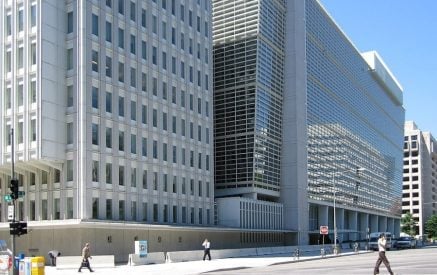Over 170 km will berehabilitatedunder the new project
WASHINGTON, January31, 2013 – The World Bank Board of Executive Directors today approved a US$45 million loan for the Lifeline Road Network Improvement Project (LRNIP) for Armenia. This project will assist the Government of Armenia in its on-going efforts to further improve accessibility through the rehabilitation of170 km of the lifeline road network of the country, and create employment mostly for rural population. It will also help Armenia to strengthen the capacity of the Ministry of Transport and Communication (MoTC) to manage the lifeline road network.
Despite visible improvement since 2009, about 50 percent of lifeline roads in Armenia remain in poor condition and there is still an important investment backlog for rehabilitation and maintenance. The degraded part of the Lifeline Road Network (LRN) causes high transport costs and prolonged journey times for road users, thus restricting the connectivity to key markets such as agriculture, and basic services such as health and education, as well as negatively affecting the country’s competitiveness.
In addition, Armenia has very challenging topography and weather conditions – the country’s terrain is very mountainous and experiences very low winter temperature, heavy snowfall and high intensity rainfall. The combination of all of these factors results in high transport costs and expensive infrastructure maintenance and development.
Read also
“As in the case of the original project, rehabilitation of additional lifeline roads would create temporary jobs in rural areas, and improve access to basic social services,” saidJean-Michel Happi, World Bank Country Managerfor Armenia. “The project will also improve market connectivity for rural areas and build upon the ongoing efforts to strengthen the basis for growth and competitiveness in needy communities.”
Since the launch of the Lifeline Road Improvement Project (LRIP) in 2009, there have been noticeable improvements in localemployment, journey timereduced on average by 40 percent.The LRIP is rehabilitating about 11 percent of the lifeline network and has demonstrated the importance of roads to the rural population along with economic gains, which can be made from improved connectivity. The World Bank-financed LRIP for the total amount of US$101.6 million has already upgraded 433 km of lifeline roads across the regions.In addition, more than39,000 person-months of local jobs were created,which also supported local employment in construction when the economy was suffering from the recent crisis.
“The sections of rehabilitated network help farmers and small businesses in rural areas to bring their produce to market more easily and at a lower cost,” addedVickramCuttaree, Head of the World Bank project team. “The civil works will startin spring. The project will also support the Government efforts to improve the sustainability of public investment through the use of more efficient contracts and improvement of MoTC management of the lifeline road network.”
The LRNIP has two main components. First, it will support lifeline road improvement with rehabilitation of 170 km of roads, located across theregions. Around 73 km (seven road segments) will be improved in 31 communities in Aragatsotn, Armavir, Gegharquniq, Kotaik, Lori andSiuniqmarzesthroughout the first year of implementation, and serve around 70,000 people.Several innovative pilot contracts will be introduced, including the combination of rehabilitation and routine maintenance in a single contract and the use of micro-enterprises for basic routine maintenance. A strong emphasis is put on ensuring that resources are allocated to maintenance and that routine maintenance, which is the cheapest and most critical type of maintenance, is done on more kilometersof roads.
In addition, a technical assistance component will strengthen MoTC capacity to manage road assets,support several road safety measures, assess the feasibility of performance based contracts, support the development of a road sector financing plan, and monitor social indicators and issues in areas where roads have been improved.
The LRNIP will also continue supporting the “Safe Village” program through small road safety civil works combined with awareness campaigns at community level.Under LRIP the village of Gyulagarak was selected as the first pilot for a “Safe Village” program and a combination of traffic controlmeasures, footway construction, and an education program in the village school have been implemented. The LRNIP will implement at least four safe villages. In addition, all road rehabilitation will incorporate safety features and efficient design standards.
The IBRD Specific Investment Loan (SIL) has a maturity of 25 years including a grace period of 10 years.
Since joining the World Bank in 1992 and IDA in 1993, the commitments to Armenia total approximately US$1,669,6 million.























































